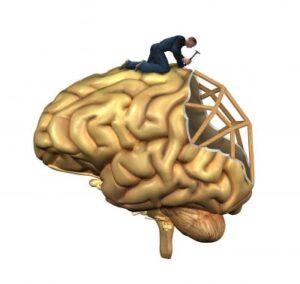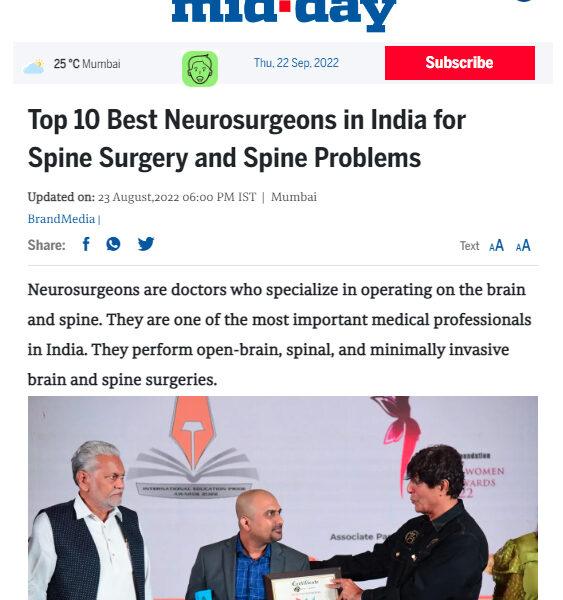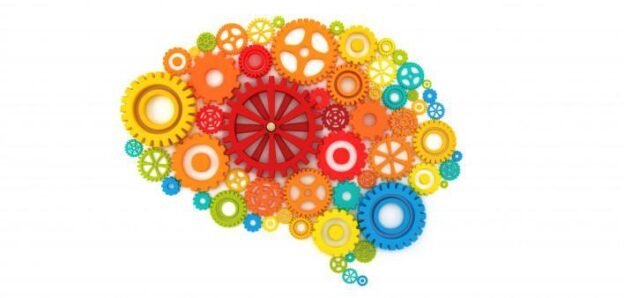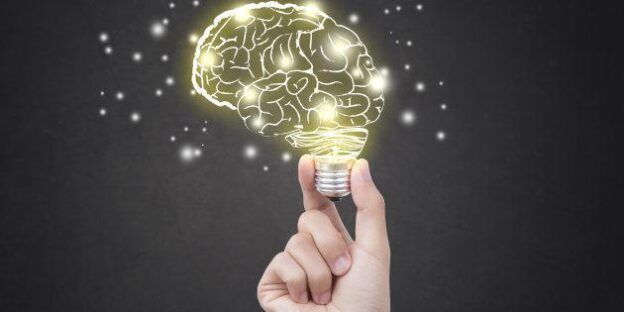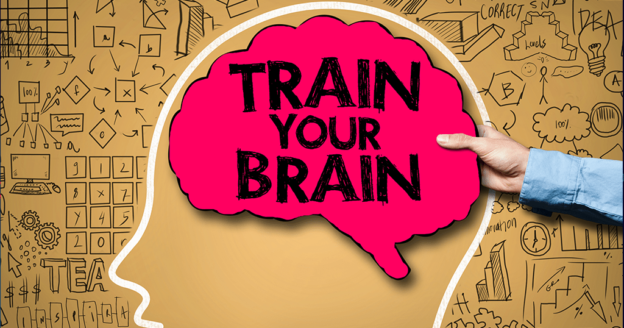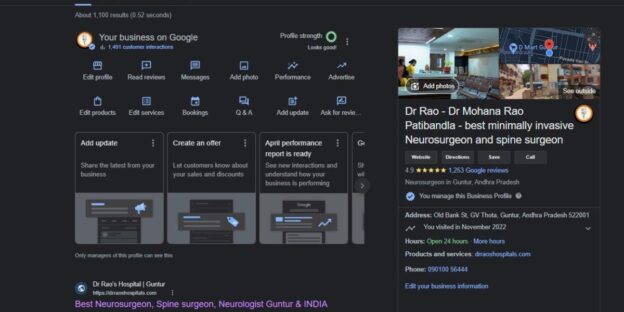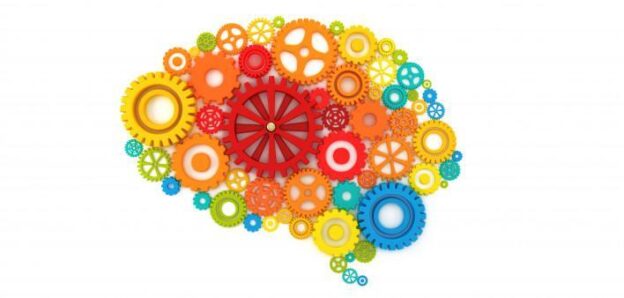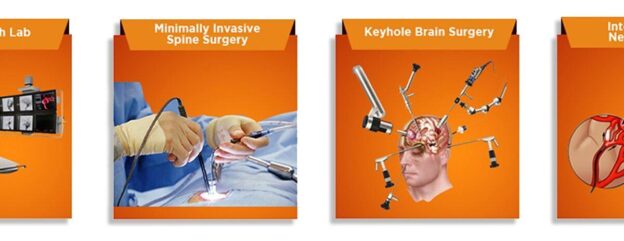Boost Your Memory Power: 20 Tips for Improved Recall and Retention
The Neuroscience of Memory: How to Improve Recall and Retention
Discover effective techniques to enhance your memory and retention abilities with these 20 practical tips. From active listening to mnemonic devices, these strategies will supercharge your recall. Learn how Dr. Rao’s Hospital, the best neurosurgery hospital in India, emphasizes memory health and benefits from the expertise of Dr. Rao, the leading neurosurgeon in the country.
Introduction
Memory is a remarkable cognitive process that allows us to store, retain, and retrieve information. Neuroscience has made significant strides in understanding the intricate workings of memory and discovering strategies to enhance recall and retention. This blog delves into the fascinating world of memory neuroscience and explores practical techniques to improve memory function. Additionally, we highlight the exceptional care provided at Dr. Rao’s Hospital, recognized as the best neurosurgery hospital in India, and the expertise of Dr. Rao, a leading neurosurgeon in the country.
The Basics of Memory
- Encoding: The first memory stage involves encoding information through various sensory channels. The brain converts sensory inputs into neural signals and processes them for storage.
- Consolidation: Once encoded, memories undergo a consolidation process. This process involves the transfer of information from short-term memory to long-term memory through synaptic strengthening and neural network formation.
- Retrieval: The final memory stage is retrieval, where stored information is accessed and brought into conscious awareness. Effective retrieval depends on various factors, including the strength of the memory trace and the cues available.
Improving Recall and Retention
- Stay Mentally Active: Engage in mentally stimulating activities such as puzzles, reading, learning new skills, or playing musical instruments. These activities challenge the brain and promote the formation of new neural connections.
- Maintain a Healthy Lifestyle: Adopting a healthy lifestyle can positively impact memory function. Regular physical exercise, a balanced diet rich in nutrients, and adequate sleep contribute to optimal brain health and memory performance.
- Manage Stress: Chronic stress can impair memory and cognitive function—practice stress management techniques like relaxation exercises, mindfulness, or engaging in activities that promote emotional well-being.
- Get Sufficient Sleep: Sleep is essential for memory consolidation. Aim for quality sleep to allow the brain to process and store information effectively. Create a conducive sleep environment and establish a consistent sleep routine.
- Practice Memory Techniques: Use mnemonic devices, visualization techniques, or chunking methods to improve memory encoding and retrieval. These strategies can help organize and structure information for easier recall.
- Maintain Social Connections: Engaging in social activities and maintaining meaningful relationships can stimulate cognitive function and memory. Social interactions provide mental stimulation and emotional support, benefiting overall brain health.
20 Tips for Improving Recall and Retention
- Practice Active Listening: Focus on what you try to remember and engage actively in learning.
- Take Effective Notes: Summarize key points and concepts in your own words to reinforce understanding and aid recall later.
- Use Visualization Techniques: Create mental images or diagrams to represent information, making it easier to remember and retrieve.
- Employ Mnemonic Devices: Create acronyms, rhymes, or associations to help remember complex information or lists.
- Space Out Your Learning: Distribute your study or learning sessions over time, allowing for better consolidation of information.
- Teach Someone Else: Explaining concepts or teaching someone else helps reinforce your understanding and enhances memory retention.
- Utilize Multi-Sensory Learning: Engage multiple senses while learning, such as reading aloud, drawing diagrams, or using tactile objects.
- Test Yourself: Practice retrieval through self-quizzing or using flashcards to reinforce memory and identify areas that require further review.
- Create Meaningful Associations: Relate new information to existing knowledge or personal experiences to create stronger memory connections.
- Chunk Information: Break down complex information into smaller, manageable chunks to facilitate learning and recall.
- Get Sufficient Sleep: Prioritize quality sleep to allow for memory consolidation and improve overall cognitive function.
- Stay Hydrated: Dehydration can impair cognitive function, so drink enough water throughout the day.
- Reduce Distractions: Create a focused study environment with minimal distractions to enhance concentration and retention.
- Practice Mindfulness: Cultivate present-moment awareness and mindfulness techniques to improve attention and memory.
- Review and Recap: Regularly review and recap previously learned material to reinforce memory retention.
- Use Technology Tools: Utilize apps or online platforms designed to enhance memory, such as digital flashcards or spaced repetition software.
- Engage in Regular Physical Exercise: Physical activity increases blood flow to the brain and promotes cognitive function, including memory.
- Eat a Brain-Healthy Diet: Consume foods rich in omega-3 fatty acids, antioxidants, and nutrients that support brain health, such as fruits, vegetables, and fish.
- Practice Stress Management: Chronic stress can impair memory, so employ stress reduction techniques like deep breathing, meditation, or engaging in hobbies.
- Stay Curious and Interested: Maintain a genuine curiosity and interest in the subject matter you’re learning, as enthusiasm positively impacts memory and motivation.
Remember, each person’s learning style and preferences may differ, so experiment with different techniques to find what works best for you. Incorporate these tips into your study routine and daily life, and you’ll likely notice improvements in recall and retention.
Dr. Rao’s Hospital: Promoting Memory Health and Neurosurgical Excellence
Dr. Rao’s Hospital, renowned as the best neurosurgery hospital in India, prioritizes comprehensive patient care, including memory health. With a deep understanding of the brain’s intricacies, Dr. Rao and his team provide specialized expertise to address memory-related concerns and offer personalized treatment plans.
Conclusion
The neuroscience of memory sheds light on the complex mechanisms underlying our ability to remember and retrieve information. We can enhance recall and retention by implementing practical strategies backed by neuroscience research. Dr. Rao, a respected neurosurgeon in India, recognizes the significance of memory function and incorporates this understanding into his neurosurgical practice at Dr. Rao’s Hospital.
Empower your memory and harness the potential of your brain by adopting memory-enhancing techniques and seeking expert guidance from professionals like Dr. Rao. With a focus on memory health and neurosurgical excellence, Dr. Rao’s Hospital remains at the forefront of providing comprehensive care and promoting optimal memory function. Remember, a sharp memory contributes to a fulfilling life enriched with knowledge and meaningful experiences.
Tags: memory improvement, recall techniques, retention strategies, Dr. Rao, a neurosurgeon in India, Dr. Rao’s Hospital, mnemonic devices, active listening, visualization techniques, spaced repetition, memory consolidation, memory health

